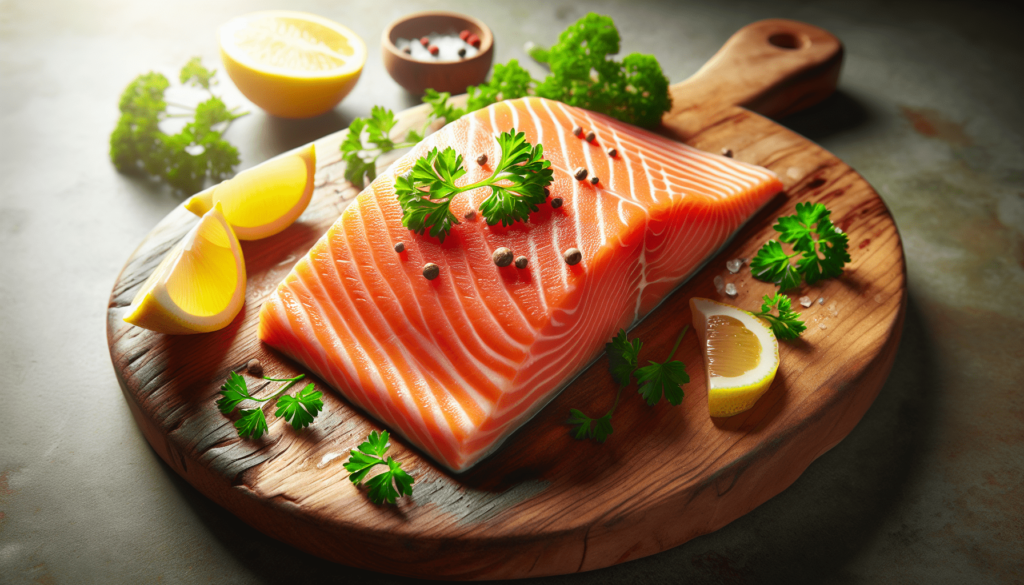Have you ever wondered why everyone and their dog keeps talking about Omega-3s like they’re some sort of mystical fish-derived elixir, capable of turning your heart from an ordinary beating clock into a finely tuned Swiss watch? Well, grab a seat, maybe some popcorn, and let’s embark on this voyage through the heart-friendly universe of Omega-3 fatty acids. Spoiler Alert: It might make you want to hug a salmon (not in a weird way).
So, What Are Omega-3 Fatty Acids Anyway?
Picture Omega-3 fatty acids as tiny superheroes wearing capes, swimming silently but valiantly through the raging seas of your bloodstream. They’re a group of polyunsaturated fatty acids, part of your body’s essential fats club—meaning your body loves them but, sadly, can’t produce them on its own. These notable fats have gained celebrity status due to their acclaimed health benefits and can be found in species that spend their lives swimming, like fish, or in humble seeds and nuts that probably never imagined they’d be so sought after.
The Fabulous Three
Omega-3s strut around as three major types, each with a name longer than your grocery list:
-
EPA (Eicosapentaenoic Acid): It sounds like a space agency, but rather than sending space probes, EPA supports your body in reducing inflammation—something akin to sending gentle peacekeepers to deflate minor squabbles within your body.
-
DHA (Docosahexaenoic Acid): Best known for being a heavyweight champion in brain development, this acid is the wise old sage of Omega-3s, ensuring your neurons are playing the right notes.
-
ALA (Alpha-linolenic Acid): Found in plants, ALA is like the newbie intern—enthusiastic but still needing conversion by your body to become EPA or DHA to really show its potential.
Omega-3s and Heart Health: A Love Story
No, it’s not a tragic tale like Romeo and Juliet where Omega-3s meet a heart only to find poison spoiling the endgame. Rather, it’s a tale of enduring love and support as Omega-3s romance your heart into a healthier, happier state.
The Beat Goes On
An irreplaceable friend to your heart’s beat, Omega-3s are often credited with lowering levels of triglycerides. Think of triglycerides as tiny annoying party crashers in your bloodstream, throwing disgraceful parties that can lead to heart disease. Omega-3s have a knack for lowering these levels, meaning fewer obnoxious party goers.
Keeping the Clot from Clotting
Remember those medieval tales of knights protecting their realms? Omega-3s act a bit like knights, preventing blood clots from forming unnecessarily. We’ve all appreciated a good clot when it nicks us shaving, but nobody wants them hosting a rave in your arteries. Omega-3s wield the sword here, making sure everything flows smoothly like a well-oiled machine.
Listen to Your Heart (and Omega-3s)
Here’s where Omega-3s double as conductors of your heart’s rhythm orchestra. Irregular heartbeats might sound exotic, but they can lead to some pretty chaotic music within your chest. Omega-3s give your heart the musical sheets it needs—ensuring that beat is on rhythm and those sinusoidal electricians keep the lights on.

Where to Find These Omega-3 Goodies?
Now, if you’re one to stand by the adage of “you are what you eat,” Omega-3s can turn you into a heart-friendly powerhouse.
Feasting on Fish
The sea is calling, and it says Omega-3s! Dive headfirst into your fishmonger’s arms (metaphorically) and snag oily fish like salmon, sardines, mackerel, and ahi tuna. These sea dwellers are swimming Omega-3 goldmines, ready to impart their goodness onto your cardiovascular system.
| Fish Type | Omega-3 Content (per 100g) |
|---|---|
| Salmon | 2,260 mg |
| Mackerel | 5,134 mg |
| Sardines | 1,480 mg |
| Tuna | 1,000 mg |
Plant-Based Heroes
Not all Omega-3 heroes wear gills. Flaxseeds, chia seeds, walnuts, and canola oil are non-aquatic sources of ALA. They might not swim, but they sure strut their stuff in the world of heart health.
Supplements: The Backup Band
If you can’t stomach fish or have a plant-based diet, Omega-3 supplements can be your jam. These capsules are like the backup singers in your nutrition symphony, ensuring that Omega-3 notes still ring clear.
The Science Behind Omega-3s: A Peek Under the Hood
If Omega-3s had a motto, it would probably be, “We science hard.” Their benefits are not just found in old wives’ tales but are backed by genuine scientific inquiry and research, standing shoulder to shoulder with scientists in lab coats.
Addressing Inflammation
When it comes to inflammation, you want to make peace, not war, inside your body. Omega-3s help reduce the levels of substances that rev up inflammation. It’s like flicking an internal “peace be with you” switch that works wonders for your heart.
Lipids and You
Your blood lipids consist of cholesterol benchmarks you want to keep pristine. Omega-3s act like editors to your lipid levels, helping lower your triglycerides while preserving your good cholesterol. Think of them as the cholesterol cooperating police force.
Heart Disease Risk Reduction
Sometimes your heart is busy doing its important job, and wants nothing to do with heart disease inviting itself over. Omega-3s can reduce the risk of heart disease, giving your heart the protective shield worthy of superhero status.

So, About Those Side Effects…
You might wonder if Omega-3s, with so much heart-hero potential, have secret powers that come with hidden costs. Well, they do have a few side effects.
The Fishy Business
If you’re consuming fish oil supplements, be prepared for the occasional fishy aftertaste. It’s like a small burp-based reminder of the ocean—perfect for nostalgic Navy folks, maybe.
Watch the Vitamin A
Some fish oils come packed with vitamin A, which is great unless you have too much of it. You want to be careful, as the double-A mega-defender can turn into an unwanted villain at high doses.
A Slippery Slope
In rare cases, high doses of Omega-3s may lead to an increased risk of bleeding, since they can also act as blood thinners. Walking the balance beam is key here.
The Mystique and Reality: FAQs on Omega-3
You may ponder Omega-3 mysteries far beyond what was ever intended for mortal understanding. Let’s answer some questions in case you’re standing at the edge of Omega-3 enlightenment.
Can Omega-3s Actually Reverse Heart Disease?
With a cape made of kale and vitamin tablets, Omega-3s do their best work as preventive measures. They play a role in reducing risk and severity but reversing heart disease entirely requires a lifestyle revamp where Omega-3s are just one venerable player among many.
How Often Should You Consume Omega-3 Rich Foods?
For optimal heart health benefits, aim for at least two servings of fatty fish per week, or a botanical banquet of nuts, seeds, and oils, if fish isn’t your thing. Remember, consistency is king—or seashell, if you’re ocean-minded.
Are There Different Omega-3 Needs for Different People?
Your body is a unique constellation, governed by factors like your age, sex, and health conditions. Pregnant women, the elderly, and those with heart conditions may require different Omega-3 dosages, so it’s a good idea to confer with your healthcare oracle.
Cardiogenic Confabulation: Wrapping It Up
Here now stands the complex, intricate dance of distant fish, humble plants, and your own steadfast heart woven into this narrative. Omega-3s are indeed a pinnacle of heart health nutrition, promising a partnership with your heart as committed as peanut butter and jelly.
If you remember one thing, let it be this: Omega-3s are not a fleeting trend, but a wholesome addition to a lifestyle that looks out for your ticker. So next time you see a salmon, give it a nod of respect (not in a weird way), because its untiring swim just might be the good heart song we all need to hear.
Now, wasn’t that a fin-tastic dive through the world of Omega-3 fatty acids?
